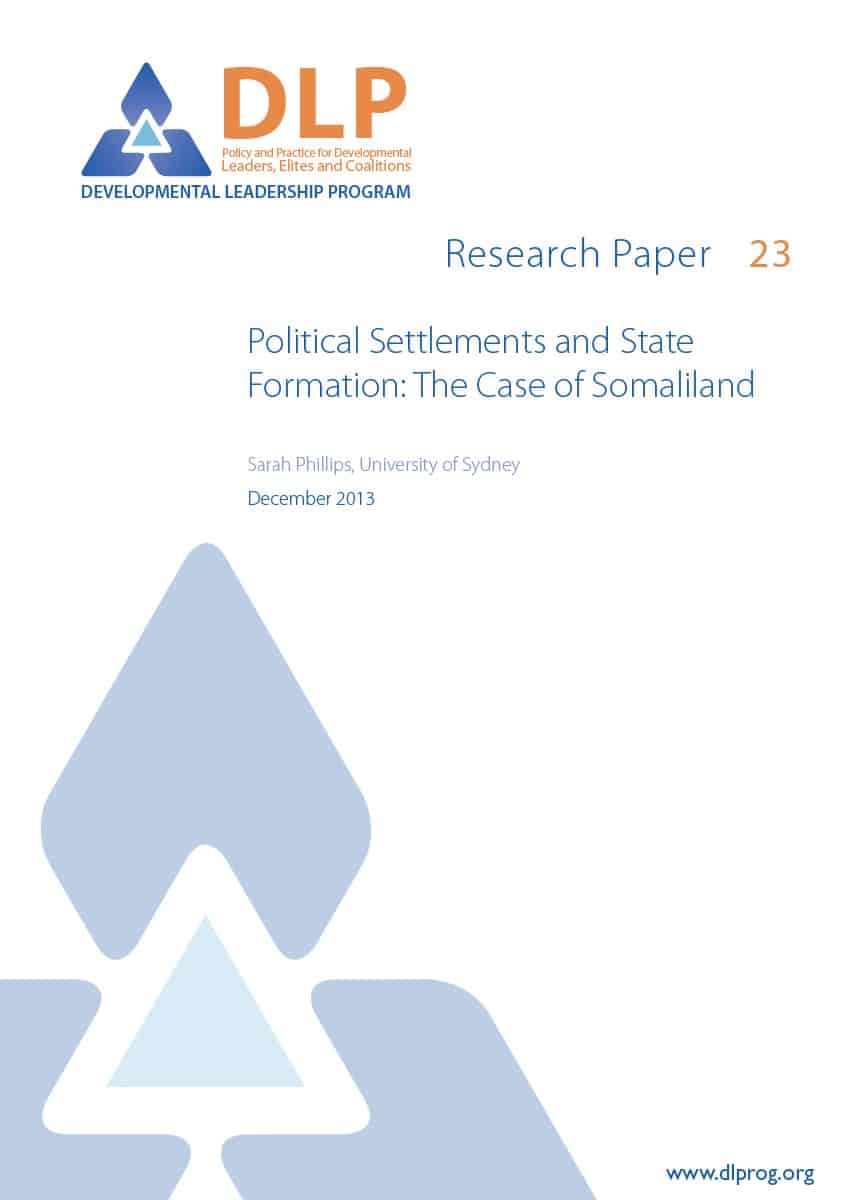Why did the civil wars in Somaliland end while Somalia’s continued? This paper asks why large-scale violence was resolved in the internationally unrecognised ‘Republic of Somaliland’ but not in the rest of Somalia.
The case of Somaliland offers insights into why some domestic power struggles – including violent ones – build the foundations for relative political order while others perpetuate cycles of economic malaise and political violence.
Key points:
Legitimate institutions are those born through local political and social processes, this paper argues, and these are largely shaped through the leadership process. Among its findings are the importance in Somaliland of:
- a domestically-funded peace process that motivated strategic symbiosis among elites;
- a lack of predetermined institutional endpoints;
- Somalilanders’ conscious desire for an enclave of peace within the surrounding turmoil;
- quality secondary education.










